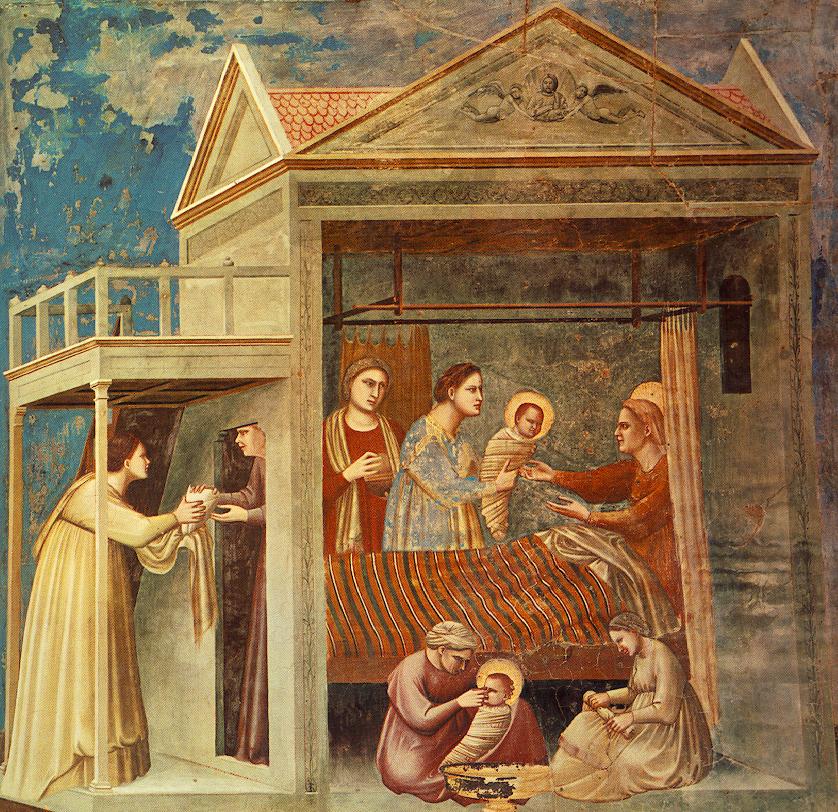"The Lord God then took the man and settled him in the garden of Eden, to cultivate and care for it. The Lord God gave man this order: "You are free to eat from any of the trees of the garden, except the tree of knowledge of good and bad. From that tree you shall not eat, the moment you eat from it you are surely doomed to die." (Gen.2:15-17)
"In Gibeon, the Lord appeared to Solomon in a dream at night. God said, "Ask something of me and I will give it to you"...Solomon answered..."Give your servant...an understanding heart to judge your people and to distinguish right from wrong. For who is able to govern this vast people of yours?"
The Lord was pleased that Solomon made this request." (1Kings 3: 5,9-10)
Rabbi Joseph Telushkin states that traditional Jewish Theology teaches that the meaning of the creation of people in God's image is precisely that they resemble him in being able to distinguish good from evil. (Biblical Literacy: p.8) Then why does God prohibit Adam from acquiring this knowledge, and is so pleased when Solomon asks for it?
In Solomon's case, God knew that this knowledge, this ability to be a judge for his people was necessary for his role as king. He also asked for an "understanding heart", or, wisdom. And that is why God gave him so much more than he asked for. Jesus will later speak similarly when he tells his disciples that the Father knows what they need, but to "...seek first the Kingdom of God and his righteousness, and all these things will be given to you besides." (Mt.6:33)
So why deny this knowledge to Adam? It doesn't sound like a sin.What would happen if we all knew good from bad? The answer to that is right in front of us. It creates the very judgmental mind that Jesus would warn us about: "Stop judging that you may not be judged...Why do you notice the splinter in your brother's eye, but do not perceive the wooden beam in your own?...You hypocrite, remove the wooden beam from your eye first; then you will see clearly to remove the splinter from your brother's eye." (Mt.7: 1,3,5)
We lead off with our judgments. We make moral judgments on everything, and we're convinced that we are right, and "they" are wrong. Franciscan Father Richard Rohr, wrote concerning God's attempt to keep Adam from eating the forbidden fruit, "I guess God knew that such would be the direction [we] would take. So God said, "Don't do it. Don't eat of the tree of knowledge of good and evil." What he's trying to keep us from is a lust for certainty, an undue need for explanation resolution and answers. Frankly, it makes Biblical faith impossible." (Things Hidden: Scripture as Spirituality p.38)
A judgmental mind never begins with love. A judgmental mind, as we see over and over, leads to divisiveness and violence against those who do not agree with us. A judgmental mind does not lead to a transcendent heart, and it is only with a transcendent heart that we will encounter the Risen Christ.
Finally, I'd like to look at a familiar parable in a different way. We all know the story of the Good Samaritan.(Lk 10: 29-37). The young man asks Jesus, "Who is my neighbor?", then after the parable, responds himself, " The one who treated him with mercy." It's pretty clear cut that within this context anyone in need, is our neighbor. But I'd like to suggest something.
Many Bible scholars now believe that the young man's question was a later addition to the gospel.
If the young man is part of the original story, why wouldn't Jesus have made a Jewish layman the one who shows mercy to an injured Samaritan? After all, Jesus is Jewish, speaking to Jews in a Jewish setting. So Jesus is saying that Jews must show mercy to even those they hate. Basically, everyone is our neighbor. But doesn't making the Samaritan the good guy, change the story? I believe it does.Isn't it possible that this parable is more about judging others, than who our neighbor is? A priest and a Levite, both respected and honored men of the community, leave their fellow Israelite to die. But their enemy, a Samaritan, someone they consider no better than a dog, whom they avoid like lepers, is the one who shows care, mercy and love to a Jew. Could they be wrong about Samaritans?
We were warned about this original sin from the very beginning. God told us we would die if we ate the forbidden fruit. But He sent us His Son to give us back our life in Him. I pray for the humility to live in the Mystery, to abide in faith and in complete surrender, to the One in whom I hope to live, now and forever.

